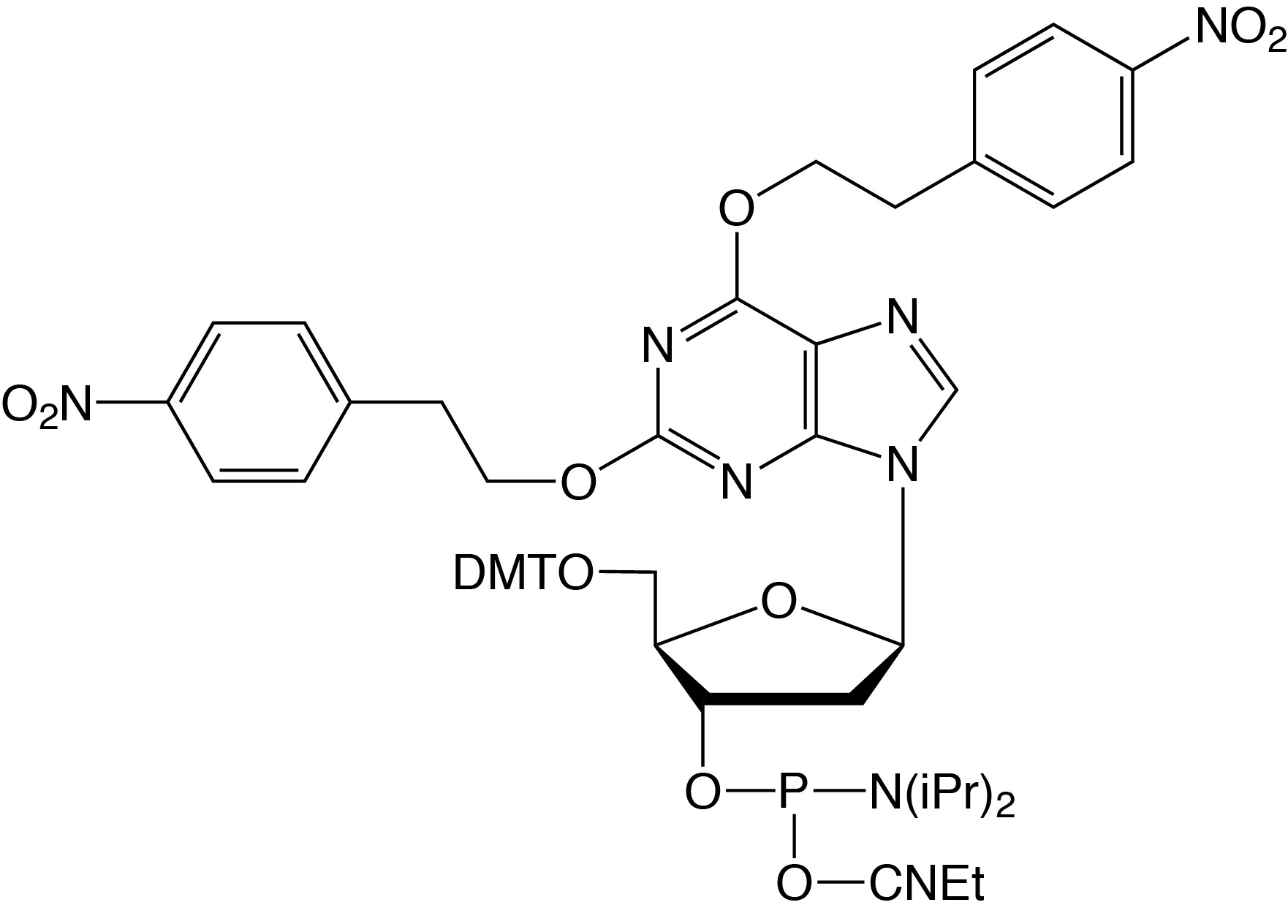Catalog Number: 10-1537-xx

Description: dX-CE Phosphoramidite
5'-(4,4'-Dimethoxytrityl)-2,6-O-bis(2-(4-nitrophenyl)ethyl)-2'-deoxyXanthosine,
3Õ-[(2-cyanoethyl)-N,N-diisopropyl)]-phosphoramidite |
| Formula: C56H61N8O12P |
M.W.: 1069.10 |
F.W.: 330.19 |
Diluent: Anhydrous Acetonitrile |
| Coupling: No changes needed from standard method recommended by synthesizer manufacturer. |
| Deprotection: With the oligonucleotide still attached to the support, treat with 1 M DBU in anhydrous ACN for 2-3 minutes, followed by 17 hours using fresh 1 M DBU at room temperature. Rinse support with ACN and then deprotect as required by nucleobases. Note, the dX nucleoside is susceptible to depurination though short exposure to acid is tolerated - e.g. Glen-Pak purification. |
| Storage: Freezer storage, -10 to -30°C, dry |
| Stability in Solution: 1-2 days |
2’-DeoxyXanthosine (dX) is a naturally occurring nucleoside that may be derived from oxidative deamination of 2’-deoxyGuanosine (dG). dX has a similar bonding pattern to thymidine and it may base pair with dA, with such purine-purine interactions causing duplex distortion. dX also featured in attempts to extend the genetic alphabet with a new base pair of dX and pyrimidine-2,4-diamine nucleoside. dX has also interested researchers in the field of DNA damage and repair since it is a product of nitric oxide-induced mutagenesis.
If you cannot find the answer to your problem then please contact us or telephone +44 (0)1954 210 200